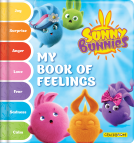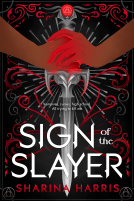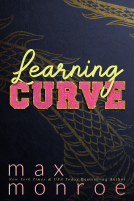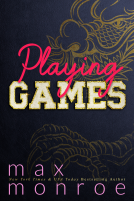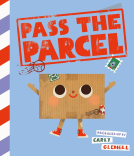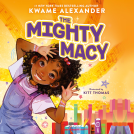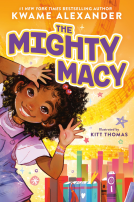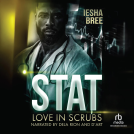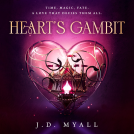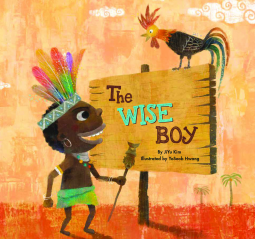
The Wise Boy
by JiYu Kim
This title was previously available on NetGalley and is now archived.
Send NetGalley books directly to your Kindle or Kindle app
1
To read on a Kindle or Kindle app, please add kindle@netgalley.com as an approved email address to receive files in your Amazon account. Click here for step-by-step instructions.
2
Also find your Kindle email address within your Amazon account, and enter it here.
Pub Date Jan 01 2015 | Archive Date Mar 06 2015
Description
Chief Wusuri is a wise boy who travels throughout the village looking for problems so he can create solutions. When a man's piece of cornbread is stolen, Chief Wusuri feels like he let his village go hungry. To solve this problem, the Chief orders his men to fetch the cornmeal from the storehouse and make enough bread for the village to share. Social and emotional learning concepts include problem solving, community, and leadership. A Reader’s Theater version is available online so that children can benefit from dramatic interpretation.
The MySELF Bookshelf series is a delightful collection of illustrated stories that encourage social awareness, self-worth, and strong relationships with family and friends. These have been found to be key components in developing social and emotional learning skills at a young age. Social responsibility is the natural outreach of healthy family relationships that in turn, nurture a child’s state of well-being. In the social awareness set, children are introduced to their connection with the wider world. The stories teach discernment, teamwork, creative thinking, compassion, and care of the environment. Internationally recognized early reading author Joy Cowley served as the language arts consultant on this series designed to help develop social and emotional learning through thoughtful text and beautiful illustration. Each book contains a note to caregivers, a story coaching letter, and an online reader’s theater. Aligns with Common Core Language Arts Anchor Standards for Language Arts while teaching social and emotional learning concepts.
A Note From the Publisher
Advance Praise
No Advance Praise Available
No Advance Praise Available
Marketing Plan
No Marketing Info Available
No Marketing Info Available
Available Editions
| EDITION | Other Format |
| ISBN | 9781599536552 |
| PRICE | $16.95 (USD) |
Average rating from 11 members
Featured Reviews
 Marilyn P, Reviewer
Marilyn P, Reviewer
In an African village lives a little boy that is so wise he is made chief of his village. Chief Wusuri walks around his territory daily, listening to the plights of his people and solving their problems. He always listens very carefully to their disagreements and then offers a sound solution that is for the good of all involved. He dispenses just, fair advice and he has a great heart for the well-being of everyone in his tribe.
One such incident involves a chicken. Everyone claims that the chicken belongs to them and fights break out because each person says that the chicken is theirs. Chief Wusuri intervenes and comes up with a great solution. He says why not kill the chicken, cook the chicken and then everyone involved in the dispute can eat the chicken. One villager begins to cry and protest, saying he does not want the chicken to be killed. The wise boy then knows who the true owner of the hen is...the crying man...because he did not want to see his beloved pet destroyed.
One man lost his cornbread and came running to the chief for help in finding it. The wise boy says they would not find the bread thief because he was hungry and wanted something to eat. Chief Wusuri takes the full blame saying it is his fault because no one in his village should ever be hungry. He orders his men to fetch cornmeal out of his own storehouse and "Make enough bread for everyone." That night there is a huge, happy celebration and no one in the village goes to bed hungry.
All this hard work and problem solving makes the little boy very tired after a long day, after all he is still a little boy. He goes home and crawls up into his mother's arms and wrapped in a snuggly hug, he falls fast asleep.
The book has a portion in the back to give you information about how to be a good leader. There is a Reader's Theatre edition of the book where you can scan the QR code on the book for ideas and activities or visit their website at:
http://norwoodhousepress.com/wiseboy.aspx
 Librarian 16831
Librarian 16831
I loved this book and I know our children and teachers will as well. Thank you for sharing this title on NetGalley. NetGalley has become an important tool for helping me find new materials for our library.
 Angela W, Librarian
Angela W, Librarian
This book is much like a fable. I didn't think I would like it at first. But it is a great book to teach children about placing others' needs first.
I really liked it. My godson is Nigerian and I am always looking for books in which he can see himself. This one was a real treat.
 Librarian 105878
Librarian 105878
What do you look for in a child's picture book? For the story, you want something that is simple and direct with a message that is easy to understand but morally straight. For the art, you want something that is bright and bold. Something that children can look at and see things that are recognizable and fun. The Wise Boy, by JiYu Kim, has all of this.
"In an African village," the book begins, giving it just a slice of exciting adventure because Africa is a faraway land, "there lived a boy so wise that he was made a chief. His name was Wusuri." A boy, probably not much older than the child listening to the story, who is so wise he's made chief! Again, in this simple first sentence we've set up an exotic location and we've hit upon a child's desire to be recognized as something special.
Through the course of the book, Wusuri listens to the problems in the village and, mostly through common sense, comes up with an acceptable answer for solving the problems. With one particular problem (villagers fighting over claim to a chicken), I was not happy with Wusuri's solution, but as I turned the page, I realized that his solution was really a 'trick' to finding the real owner.
The story ends with a reminder that Wusuri, great chief though he may be, is still a child who relishes his mother's love.
The artwork is really beautiful with a hint of native African styles and designs, but somehow managing to be modern as well. I could stare at this artwork for a very long time and I expect most youngsters listening to the book could as well.
I am a little sad, however, that everyone in this little village seems so angry (in appearance and in manner). It is too bad that he couldn't solve at least one problem that didn't have to do with quarrelsome villagers but fixing, perhaps, a problem of nature. In any event, this is definitely a book that I would read to children and one that I am confident would want to be heard/seen again and again (the real measure of a good children's book).
Looking for a good book? The Wise Boy is a wise choice for anyone looking for a good, new picture book for children.
I received a digital copy of this book from the publisher, through Netgalley, in exchange for an honest review.
Readers who liked this book also liked:
Carine Laforest;
Children's Fiction
L.M Montgomery
Children's Fiction, Comics, Graphic Novels, Manga, Teens & YA
Publishers Lunch
General Fiction (Adult), Nonfiction (Adult), Teens & YA
